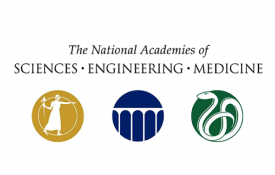-

NASEM Seeking Committee Members for Study on Ontology Development and Use
NASEM is looking for psychological scientists and others to serve on the committee that will oversee this study.
-

September 2020 Observer
The latest Observer magazine, including best practices for remote working, learning, and research.
-
Repeating Misinformation Doesn’t Make It True, But Does Make It More Likely To Be Believed
One of the most frustrating aspects of the coronavirus pandemic is seeing all of the false information circulating around social media. I was inspired to write this article after reading unfortunate (and inaccurate) comments on a local Georgia school district’s Facebook page after they announced that three of its high schools were transitioning back to digital learning. It was breathtaking to see so many inaccurate claims about efficacy of face masks, fatality rates, or comparisons to the flu. My Forbes contributions are typically about weather and climate, but I am often inspired to make connections with other aspects of science too.
-

New Research in Psychological Science
A sample of research on confidence and task prioritization, language patterns, eyeblinks and perception, dishonesty, negotiation, sound symbolism.
-
Why Scapegoating Is A Typical Human Response To A Pandemic
First comes the disease. Then the scapegoating. Whether it's Ebola, cholera and now COVID-19, Jesse Verschuere has witnessed "a pattern of stigma against others in every disease outbreak" he has responded to as part of the international medical humanitarian organization Doctors Without Borders. The objects of prejudice have included health-care workers, minorities, immigrants, indeed any outsider or other who looks or acts different from those in the local community, says the Belgium-based Verschuere, who works to improve the ability of communities to obtain health care. This bias occurs around the world. And it's not anything new.
-

Healthier Eating Is Possible Even During a Pandemic, If You Simply Talk to Yourself
A technique known as “distanced self-talk” is an effective strategy for making healthier food choices.


